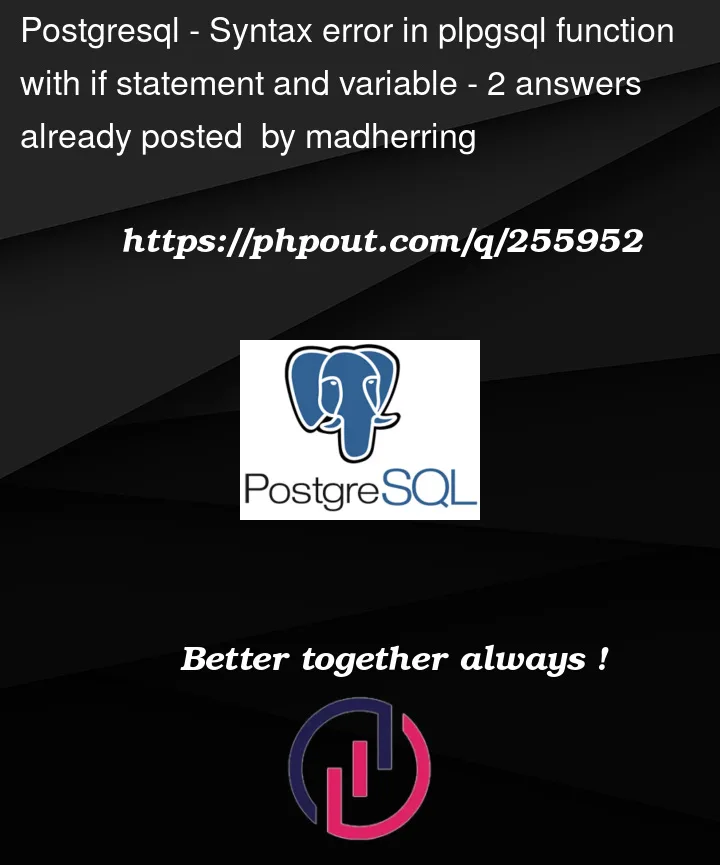I’m new to SQL and don’t think I understand how to write if else statements. The following code block produces a syntax error at the if statement.
create or replace function weight_from_days_ago (days_ago int, difficulty int, user_level int, root_score int)
returns int as $$
begin
declare average_days_ago int := (select avg(days_ago));
if average_days_ago = 0 then
average_days_ago := 1;
return ((select coalesce(days_ago, 0))/average_days_ago) + abs(difficulty - user_level) + root_score);
end;
$$ language plpgsql;
This function, without the additional variable, also produces a syntax error when run.
begin
return (select coalesce(days_ago, 0)/(if ((select avg(days_ago)) = 0) then 1 else (select avg(days_ago))) + abs(difficulty - user_level) + root_score);
end;




2
Answers
Syntax error isn’t that difficult to fix, just follow error messages database engine reports; it’s about superfluous closing bracket, missing
end if. Moreover, ififcondition isn’t satisfied, function ends without returning any value (which is invalid) so you have to fix it. How?ELSEmight be an obvious choice.Furthermore, what is the purpose of selecting average value of a scalar
inparameter? What is average of 13? It is 13, of course … so, why averaging it at all?Anyway: such a code compiles and returns result (see fiddle:
However, I’d suggest you to think it over and fix logical issues.
There are obvious syntax errors and nonsense like Littlefoot already pointed out. Read the manual here and here.
Moreover, there is nothing in your function that would require a procedural language like PL/pgSQL to begin with. An expression is evaluated. Just use a plain SQL function:
See:
Also, there is no
IFin SQL (onlyCASE). That makes your 2nd attempt invalid. Don’t confuse SQL syntax with PL/pgSQL syntax. I useGREATEST()instead (which would also catch negative integers).You can also use a "standard SQL function" in Postgres 14 or newer:
Even a bit shorter and faster, yet. See:
See also:
Aside:
abs(difficulty - user_level)looks counter-intuitive, too. Lower levels get the same bonus as higher levels?